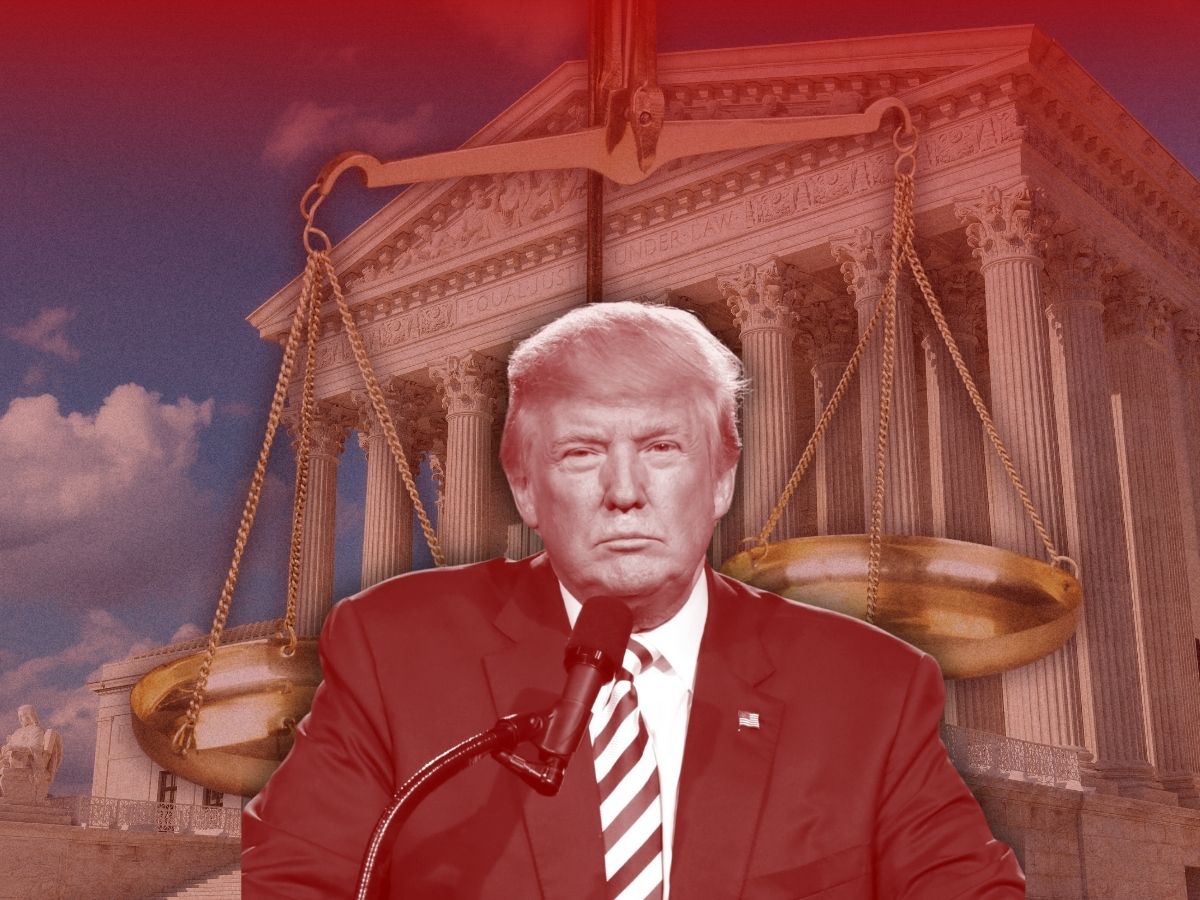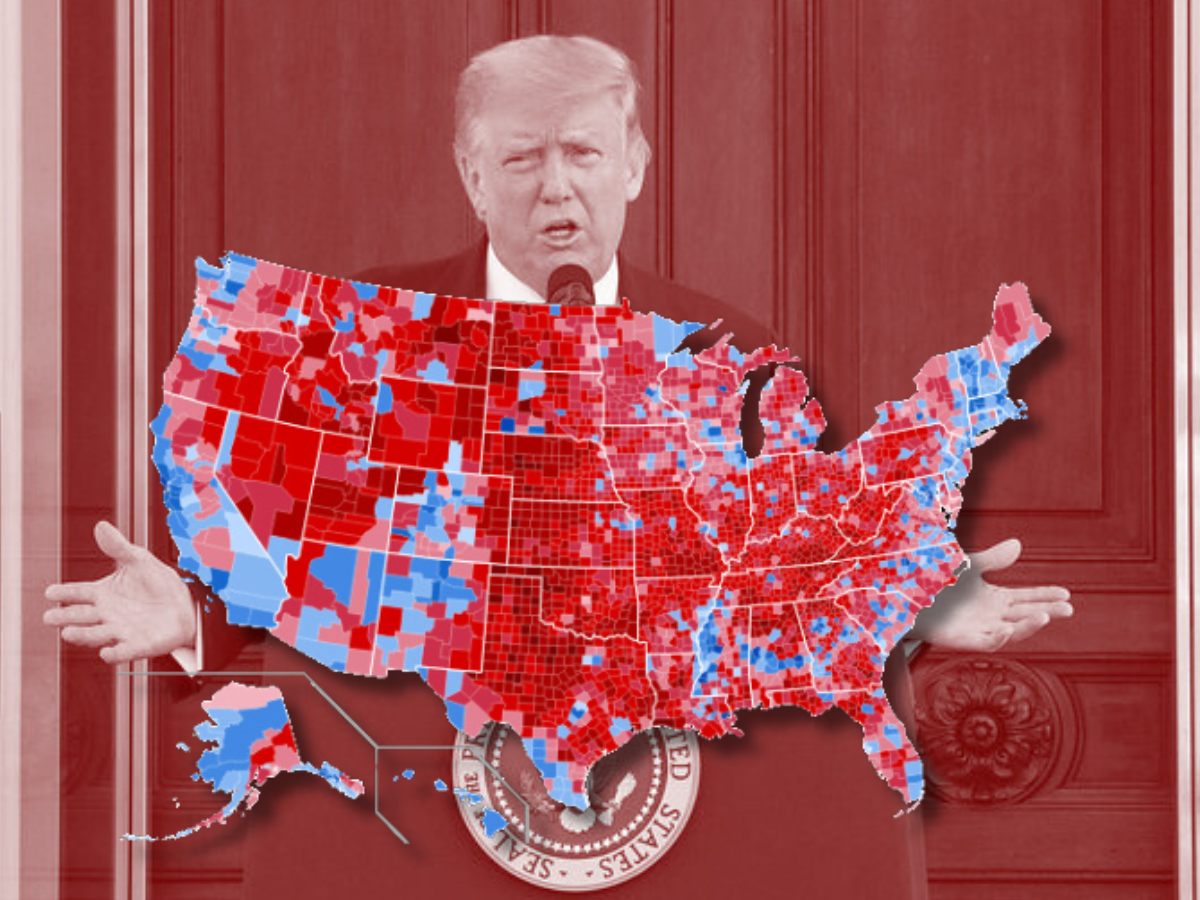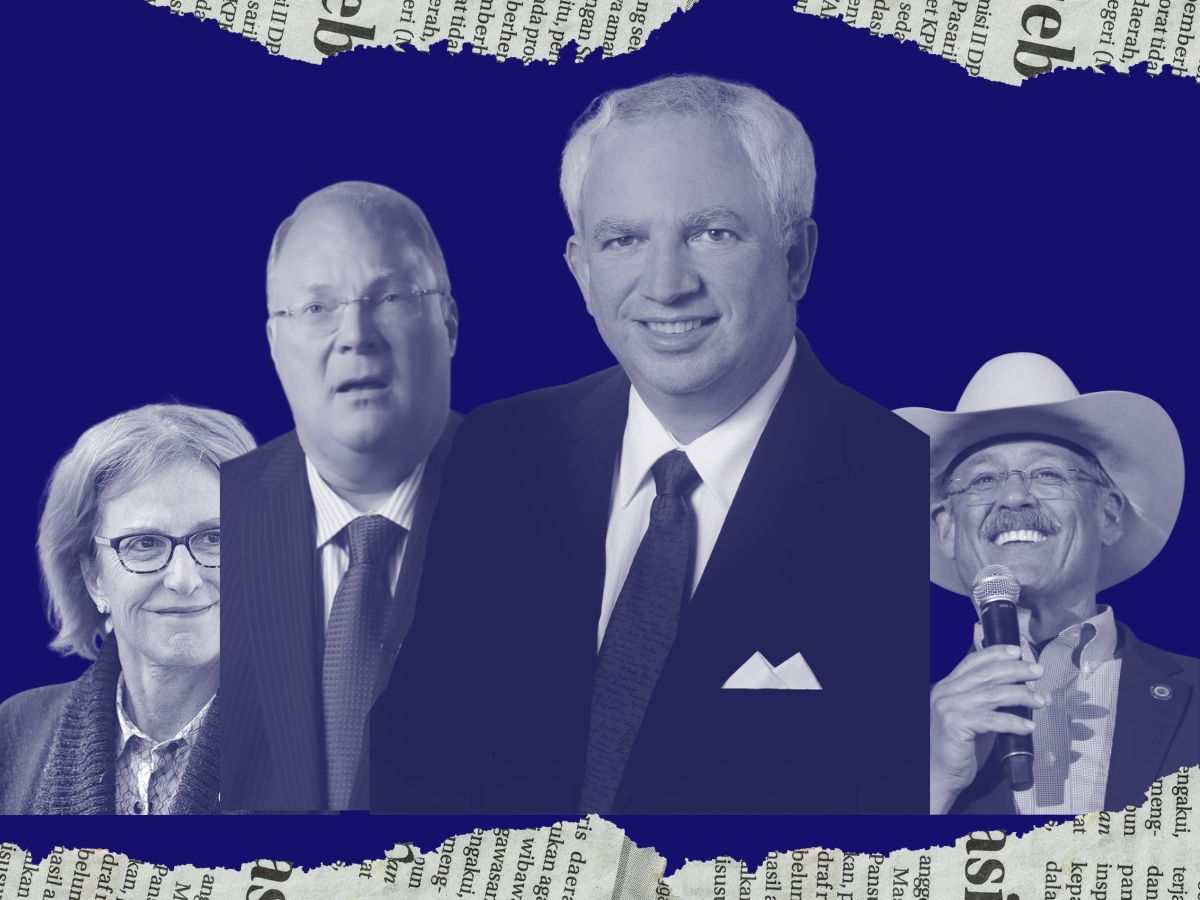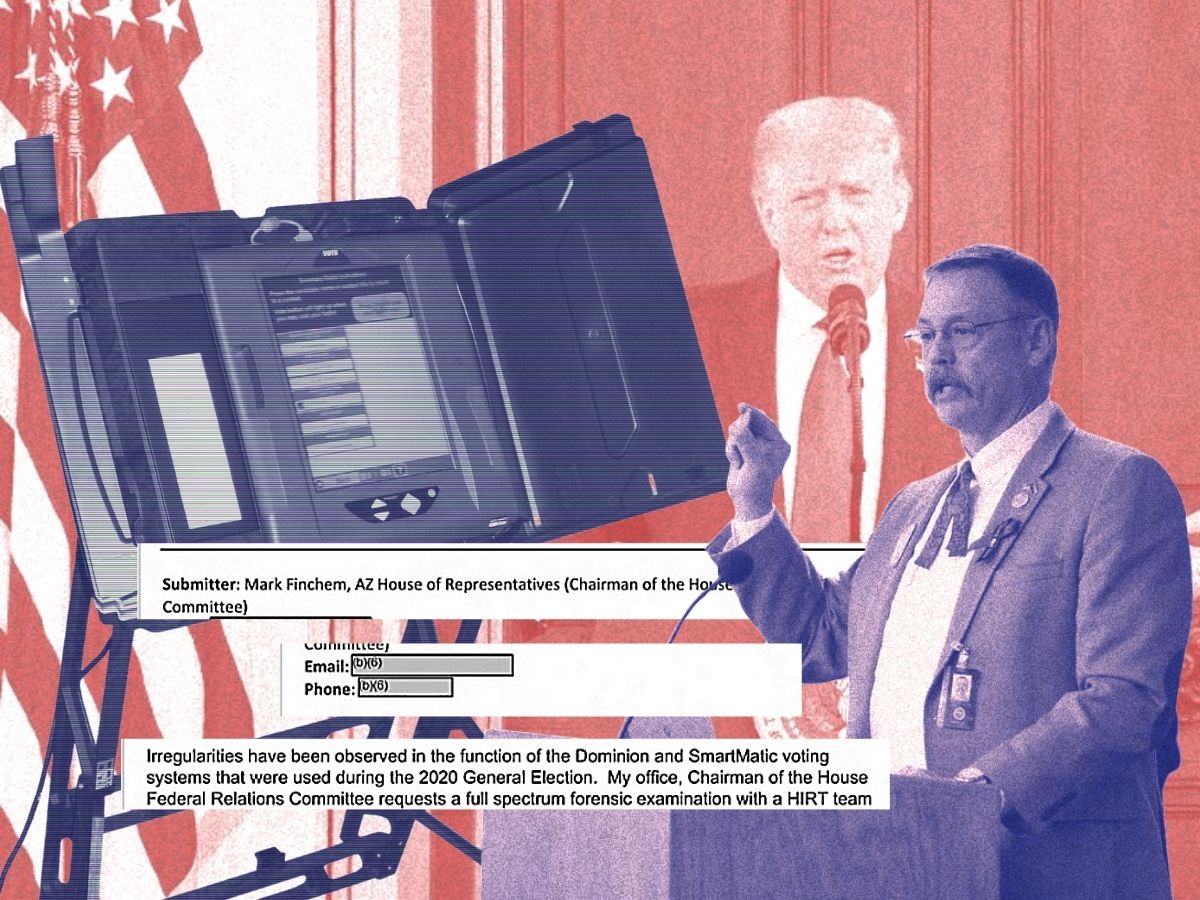
Trump’s Pressure Campaign on the Justice Department to Overturn 2020 Election Results
American Oversight is investigating the efforts of former President Donald Trump and his allies to pressure Justice Department officials into abetting his attempts to overturn his 2020 election loss. We have filed dozens of Freedom of Information Act requests and multiple lawsuits for records that could shed light on the former president’s extraordinary and alarming bid to maintain power by subverting the will of the people.

Despite there being no evidence of widespread voter fraud, the weeks that followed the 2020 election saw former President Donald Trump continually attempt to pressure state and federal officials to act on his baseless claims, from threatening retaliation to making lengthy cajoling phone calls. Particularly alarming was his campaign to enlist the U.S. Department of Justice to validate and perpetuate his false allegations of voter fraud, including a plot to replace Justice Department leadership with a loyalist willing to help in his anti-democratic effort.
In early December, as Trump’s reelection campaign and its allies filed desperate lawsuits alleging various voter-fraud conspiracies, Attorney General William Barr — who stepped down later that month — publicly said the Justice Department had uncovered no evidence of widespread fraud that would have changed the election’s outcome. But Trump, who had long sought to use the Justice Department to serve his own political ends, remained fixated on coercing the department to cast further doubt on the election.
The New York Times first reported in late January that Trump had conspired to replace former acting Attorney General Jeffrey Rosen with Justice Department official Jeffrey Clark, a Trump loyalist who was willing to use the department to investigate unfounded allegations of widespread voter fraud and to work to prevent the certification of the Electoral College results. Among the ploys floated by Clark, as confirmed in a Senate Judiciary Committee report released in October 2021, was a draft letter telling Georgia state legislators the department was investigating voting “irregularities,” and asking them to convene a special session for the purpose of “considering issues pertaining to the appointment of presidential electors.” The Judiciary report said that Clark also planned to send the letter to election officials in several other states that Biden won. According to reports, Trump also pushed for the appointment of special counsels who would investigate fraud conspiracies as well as election equipment manufacturer Dominion Voting Systems. Trump only dropped the scheme to replace Rosen after he was told during a Jan. 3 Oval Office meeting that several top Justice Department officials had threatened to resign should Rosen be ousted.
Emails released by the House Oversight Committee in June 2021 also showed Trump and his allies having sought to have the Supreme Court invalidate the Electoral College votes from six states Trump lost and order a special election. This included a draft of a brief, sent to Rosen by Trump’s assistant and prepared by outside lawyers, that the president wanted Rosen to file with the court arguing that states’ measures to make voting easier during the pandemic had opened the door to fraud. When Rosen refused to file the brief, an outside lawyer for Trump repeatedly called Rosen’s advisers and other Justice Department officials demanding to meet about the brief, according to records released by the committee.
On Jan. 4, Byung Pak, the U.S. attorney in Atlanta, suddenly resigned from office, which the Wall Street Journal later reported was forced by the White House. According to the Judiciary Committee report, Principal Associate Deputy Attorney General Richard Donoghue had warned Pak the night before that Trump was furious over Pak’s perceived inaction on voter fraud claims. Pak’s resignation came just one day after Trump urged Georgia Secretary of State Brad Raffensperger to “find” nearly 12,000 votes that would reverse his loss in the state — according to the report, Pak was “personally very concerned” by Trump’s attempts to overturn the election in Georgia. Instead of replacing Pak with the first assistant U.S. attorney in Pak’s office, Trump appointed Bobby Christine, the U.S. attorney for the Southern District of Georgia whom Trump said could “find out if there’s something there.” A week after taking office, Christine told his staff that there was “just nothing to” two high-profile fraud accusations his office had investigated. He resigned from that position less than a month later.
American Oversight has filed dozens of public records requests for documents that could help the public further understand how and to what extent Trump sought to coerce top Justice Department officials into supporting his lies and to upend law and order in his desperate bid to cling to power.
In April, we sued the Justice Department to compel the release of records that could shine a light on Trump’s pressure campaign. Among the records sought in that lawsuit are all email communications about election fraud allegations sent by top Justice Department officials between Dec. 10 and Jan. 20, as well as a Justice Department talking points memorandum drafted at Rosen’s request regarding Trump’s efforts to file a brief in the Supreme Court.
In October, we filed another lawsuit against the Justice Department to compel the release of notes from several White House meetings, including the Jan. 3 Oval Office meeting. The lawsuit also seeks the release of communications sent by Chief of Staff John Moran regarding fraud allegations, Clark’s text messages and emails, and both Clark’s and Rosen’s calendar records from the presidential transition period.
Other records we are seeking include communications Pak had with the White House and Trump allies around the time of his resignation, as well as Christine’s communications and his and Pak’s calendars. We have also requested the release of texts or emails of senior adviser Patrick Hovakimian about Trump’s efforts to oust Rosen and the communications of other senior officials with the White House.








